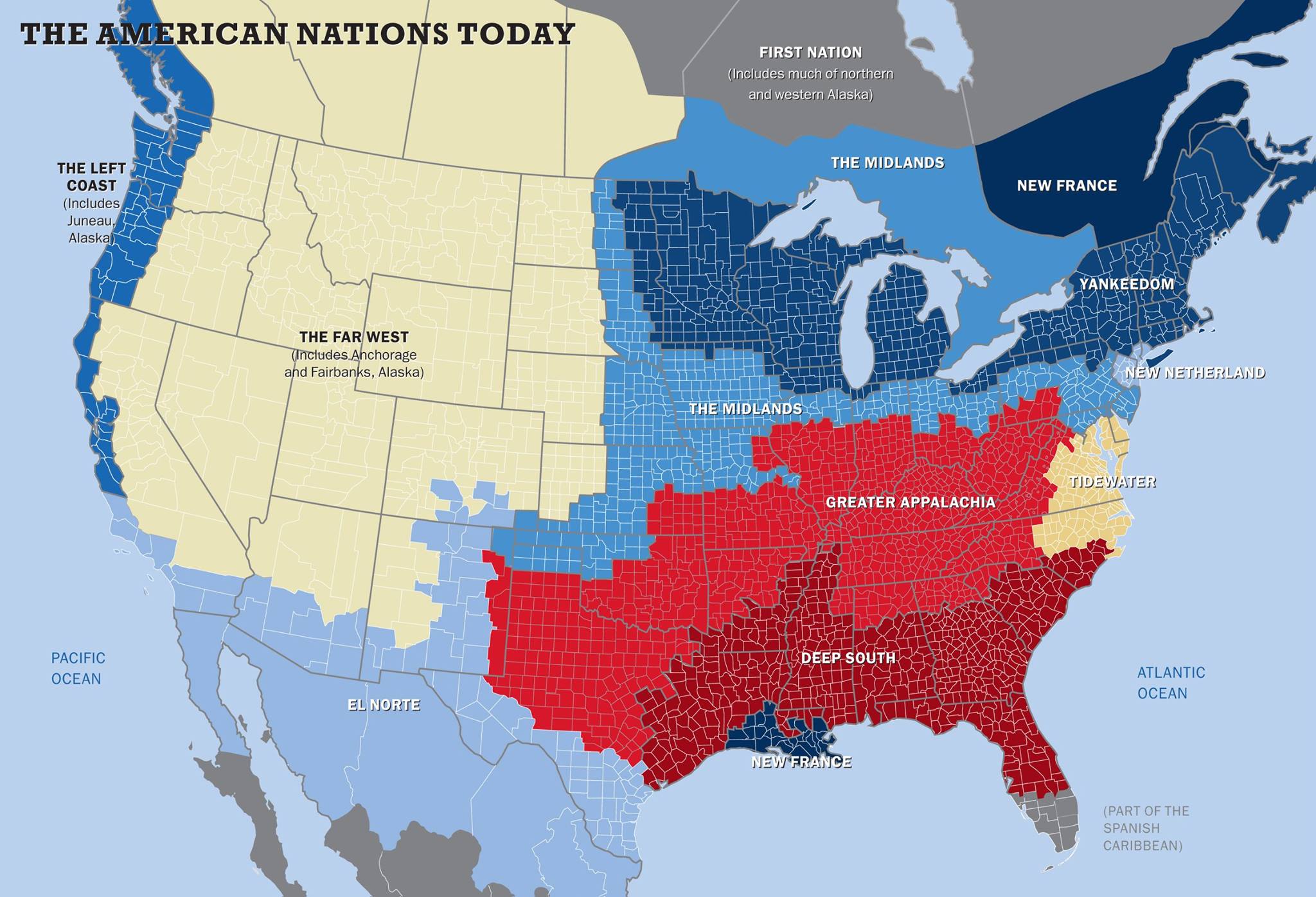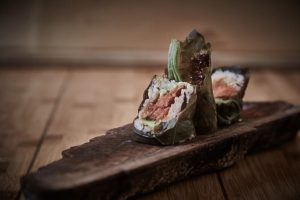Episode 18: The Side of the Road

We dig into data showing racial disparities in traffic stops and get a play-by-play of one, talk to historian Colin Woodard about what means to be a Yankee, and get rid of invasive plants and animals… by eating them, with chef Bun Lai of Miya’s in New Haven.
Police Traffic Stops and Racial Disparity
Getting stopped by police is a good way to ruin any driver’s day. But if you’re African American, data show these stops happen more often, result in more searches, and can break down trust between police and communities. Below is police dashcam video from West Hartford, Connecticut — where, like several other towns in Connecticut, you’re much more likely to be pulled over if you’re black or Hispanic than if you’re white.
We hear personal stories and examine the data in Connecticut, Rhode Island and Vermont with WNPR investigative reporter Jeff Cohen.
The officer in the video above asks the driver, Paul O. Robertson, what brings him to West Hartford.
“Having that line of questioning, honestly, I was just floored,” Robertson said. “Because in my mind, I’m trying to be respectful at the same time, and not create a conflicting situation in that moment. … It is the language, the demeanor, in terms of how it’s communicated. And then, just the line of questioning made me feel like I didn’t belong.”
Questioning Yankeedom
The map is a thing that’s never more analyzed than during an election year: red states versus blue states, cities versus rural towns, maps divided by gender, age, race, population, and more. And it’s possible there’s been no other election cycle in which we thought we had a map figured out, only to realize we had it all wrong.
Writer and historian Colin Woodard has spent a lot of time looking at – and redrawing- the map of the United States. He’s thrown out the idea of “states” … and instead imagines eleven distinct “nations” connected not by our current governmental boundaries, but by a common culture.

American Nations map by Colin Woodard, design by Tufts Magazine. In his book, Woodard chronicles how “Yankee” influence spread from New England westward, and even eastward into Canada.
New England is the home based of a region Woodard calls “Yankeedom,” stretching from Nova Scotia in Canada west to Minnesota. It’s just one of the nations he describes in his book American Nations: A History of the Eleven Rival Regional Cultures of North America.
Host John Dankosky spoke with Woodard a few months before the election – and we thought his insight into what divides us and brings us together might make even more sense now. We reached him at the library in his home town, Freeport, Maine.
Cooking and Eating Invasive Species

Wabisabi: Wilk Alaskan Coho Salmon seared in kimchee peppers and wrapped in pickled foraged grape leaves. (Credit: miyasshushi.com)
If New England has a regional food, it’s got to be seafood: lobsters, clams, scallops, and for as long as it lasts, cod. Some fish, like cod, are considered “vulnerable” in New England waters. Others, like herring, are in short supply.
You might not think about herring as a fish you would eat, but it’s used as bait for those tasty lobsters, and that has lobstermen worried. Depleted stocks, warming waters, pollution, nitrogen runoff — these are all concerns that have us changing the way we think about what we eat from our waters.
That’s why a group of chefs, scientists, and fishermen gathered in Rhode Island recently to cook with what’s called “trash” fish, or “bycatch” — the unwanted residue of a commercial fishing operation.
Food like that is on the menu at Miya’s, a restaurant in New Haven, Connecticut. It’s known as the birthplace of sustainable sushi. What does that mean? Well, you can’t find the things you’re used to seeing on the menu of the sushi place down the street. Food like farmed shrimp or salmon, or bluefin tuna, or eel, are all replaced by “unwanted” fish like carp, and lots of plants.
Some of those come from Bun Lai’s front yard. We spent about 20 minutes stooped over on a sweltering day last summer filling a basket with wild mustards, mugwort, and dandelion weeds. Bun Lai called it “lunch.”
In October, Bun was one of twelve people from across the country to be recognized as “White House Champions of Change for Sustainable Seafood.”
About NEXT
NEXT is produced at WNPR.
Host: John Dankosky
Producer: Andrea Muraskin
Executive Producer: Catie Talarski
Digital Content Manager/Editor: Heather Brandon
Contributors to this episode: Jeff Cohen, Lydia Brown, Galen Koch, Jonathan McNicol, Kristin Gourlay, Emily Corwin
Music: Todd Merrell, and Goodnight Blue Moon‘s “New England”
We appreciate your feedback! Send praise, critique, suggestions, questions, story leads, and pictures of your corner of New England to next@wnpr.org.
